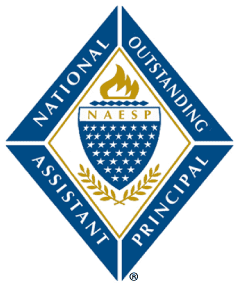
Robert Bielawa
Henri A. Yelle Elementary School
Norton, Massachusetts
rbielawa@norton.k12.ma.us
Best Practices
1) Whole Child Initiatives: It is extremely important for a school to have a safe and positive learning environment because it will help students succeed. I was a member of the building level team that successfully implemented the Positive Behavioral Interventions and Supports (PBIS) framework, and this has helped create a school culture where students feel respected and are physically and emotionally safe. The standards for behavior are clearly communicated to the students and consistently enforced by staff throughout the school. Because of this, the students are not afraid to take risks as they know they will be supported by their fellow classmates. Students are constantly recognized and rewarded for meeting the behavior expectations of being respectful, responsible, and safe anywhere in the school. This helps foster accountability and fidelity in our PBIS program.
There are also students who need additional support to make sure they follow expected behaviors. I have taken the next step this year and initiated a Check in Check Out (CICO) program for students who need Tier 2 behavioral support. The CICO is a daily progress report in which students can earn points by following the school’s values of being respectful, responsible, and safe. I check in with students who are on a CICO prior to their school day starting. I give them their chart, and we make a goal for the day. At the end of the day, the students check out with me, and we analyze the data recorded on the chart. I praise students for doing well, but I also discuss with them any areas in which they struggled, so we can try to come up with a plan to make the next day better. I record this data in the Panorama Education platform so I can track any patterns in behavior.
I strongly believe with our PBIS program and the Tier 2 behavior interventions we use, our students strive to be respectful, responsible, and safe. We have created a productive and positive learning environment that allows all students to be successful and maximize their learning potential.
2) Student Assessments: The Integrated Multi-Tiered System of Supports (I-MTSS) is so important for educators to provide differentiated support and just right interventions for students based on their needs. In the Norton School District, we are in year two of our I-MTSS plan. I was part of a team that created a Lancer Learning Time (LLT) last year at my school. This scheduled 40-minute block has provided staff members the opportunity to provide effective and high quality academic instruction to every student in small groups and at their level. It is an all hands-on deck approach, as we use all staff to take a similarly leveled group of students to teach them a specific concept. Struggling learners receive intense instruction in very small groups to match their needs, which will help accelerate their learning. Students on grade level are challenged with students of similar abilities so they can reach their academic potential, while our advanced level learners have been enriched and are able to learn the grade level standards in depth. We also found time for the LLT staff to meet so they can track students progress, plan, and create lessons. Since the LLT is an all hands-on deck approach, I teach a group everyday during the week. I rotate through the fourth and fifth grade so I have the opportunity to see many of our students who are at various levels. A benefit of teaching the students is to have another set of eyes on them. Recently, I referred a student to our Instructional Support Team to receive additional services because he was not making progress in my group, and the classroom teachers had concerns about him. The team met, created goals for the student, and put in place additional support to help the student succeed.
As a district, we are still in the beginning phases of I-MTSS. However, the recently created LLT block has been a great addition to the Yelle school, as it has helped teachers differentiate instruction and give just right interventions to students based on their needs.


